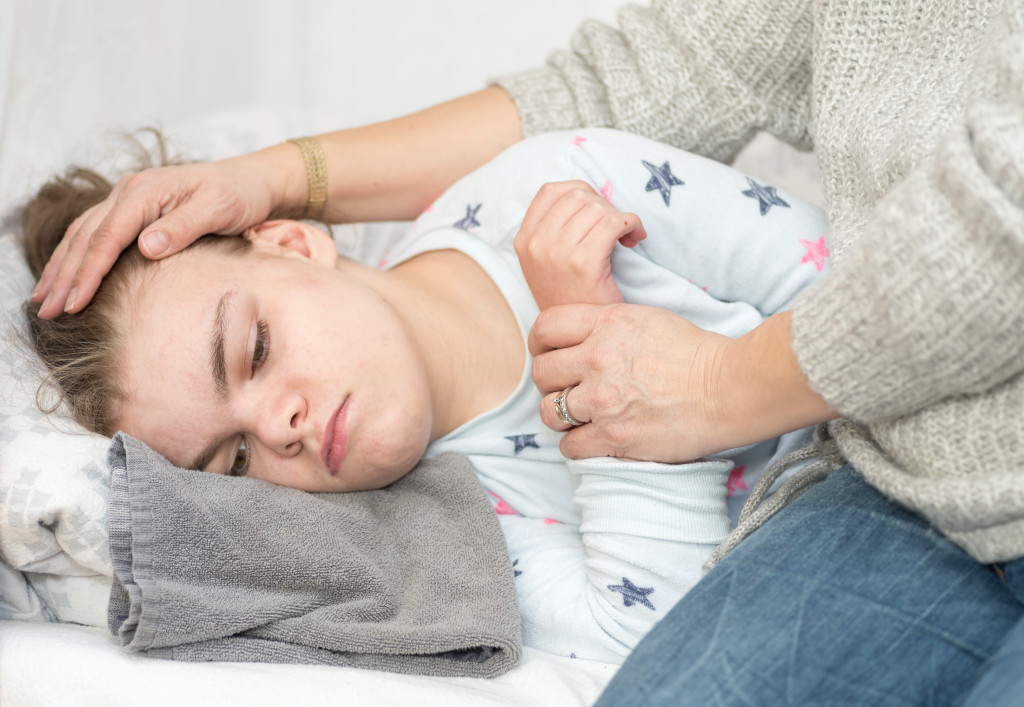According to the Centers for Disease Control and Prevention (CDC), salmonella is a bacteria that causes an estimated 1.35 million illnesses and 420 deaths in the United States each year. Children are especially susceptible to salmonella poisoning because their immune systems are not fully developed. So if you want to protect them from it, know these five ways your child can be exposed to salmonella.
Unwashed Hands
One of the most common ways children are exposed to salmonella is by putting their hands in their mouths after touching something contaminated with the bacteria.
Undercooked Food
Another way children can be exposed to salmonella is by eating food that has not been cooked properly.
Animal Contact
Children can also be exposed to salmonella by coming into contact with animals, such as reptiles, amphibians, birds, or rodents, that are carrying the bacteria.
Contaminated Surfaces
Salmonella can also spread through contaminated surfaces, such as countertops, utensils, or toys.
Raw Milk
Finally, raw milk can also contain salmonella bacteria, making your child sick if they drink it.
As a parent, it is important to be aware of how your child can be exposed to salmonella so you can take steps to prevent them from becoming sick. Additionally, five things you should do to keep your child safe from such a disease.
Clean Your Home
A dirty home is a vector for many diseases, including salmonella. One of the main reasons for this is that dirty surfaces can harbor bacteria and spread it to your child. Therefore, you must do three essential things to keep your home clean and safe from the virus.
Disinfect
Disinfection is one of the most fundamental things you should do in your home. It can keep your home clean and safe from all viruses and bacteria. If you want to disinfect your home, ensure that you use EPA-registered disinfectants and follow the instructions on the label.
Clean Up After Pets
Pets can also carry bacteria like salmonella, so always remember to clean up after them and keep them away from areas where food is prepared or eaten. Also, bath them a couple of times a week to ensure they are not carrying the bacteria.
Keep Clean Sheets
Lastly, you must ensure that you have clean sheets inside your home. You can do this by washing them regularly and changing them at least once a week.
Wash Hands Frequently
One of the easiest ways to prevent the spread of salmonella and other viruses is to wash your hands frequently, especially before handling food or eating. Teach your child good handwashing habits and ensure they wash their hands thoroughly with soap and warm water for at least 20 seconds.
Avoid Cross-Contamination
Cross-contamination occurs when bacteria on raw meat or poultry come in contact with cooked or ready-to-eat foods like fruits and vegetables. This can happen if you use the same cutting board or utensils for raw and cooked foods without properly cleaning them in between uses. It can also be because of how you store things inside your refrigerator. Here are three tips to avoid cross-contamination:
Proper Storage
The first thing you need to know is proper storage. When storing raw products in the fridge, ensure they are not on top of the ready-to-eat foods and have their designated shelf.
Thorough Cleaning
Another important thing to do is to always clean utensils, cutting boards, and countertops thoroughly before using them for different types of food. Make sure you use hot water and soap or disinfectant.
Use Gloves
Finally, use gloves when handling raw meat to prevent cross-contamination, and always wash your hands after removing them.
Cook Food Thoroughly
How you cook your food significantly affects whether or not it will contain salmonella bacteria. Always cook poultry, ground beef, and eggs until they are well done. Use a food thermometer to ensure the internal temperature is high enough to kill any bacteria in the food.
Be Aware of Food Recalls
Lastly, always be aware of any food recalls related to salmonella. If a product in your home is recalled, dispose of it immediately to prevent food poisoning. Stay informed and check the FDA website for any updates on recalls.
Pediatric Services
Despite these measures, there’s still a possibility that your child might get infected with salmonella. If they experience vomiting, diarrhea, fever, and stomach cramps seek immediate medical attention at your local pediatric urgent care. Experienced pediatricians can provide the necessary treatment to help your child recover quickly and safely. They can also advise on any further steps to prevent salmonella spread in your home.
Remember, preventing salmonella and other illnesses starts with keeping your home clean and being aware of potential risks. So stay informed, follow these tips, and always seek medical attention if needed for the health and safety of your family.

